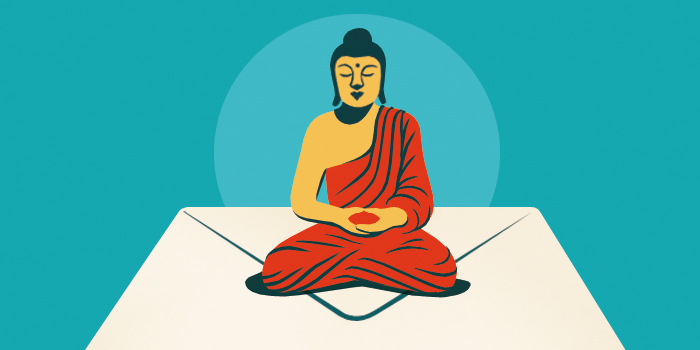Is Buddhism a form of psychology or psychotherapy?
The Buddha lived and taught 2,500 years before the field of psychology was established, but the teachings he left behind include wide-ranging and profound analyses of human behavior that overlap in many ways with the findings of contemporary psychology. The Buddha’s path of practice, moreover, can be seen as a kind of self-directed therapeutic strategy for ending the suffering caused by the mind.
The Pali canon—which comprise some of the earliest recorded teachings of the Buddha—contains numerous discourses on human emotions, motivations, and reactions, including those that are latent or unconscious. One of the three principal sections of the canon, the Abidhamma (Sanskrit, Abhidharma) Pitaka, or “Collection of Special Teachings,” is often referred to as a compendium of Buddhist psychology, as it classifies the factors of mental and physical experience and how they relate to each other. The Abidhamma also offers a course of treatment in the form of instructions for ethical conduct, mind training, and the cultivation of wisdom.
D. T. Suzuki (1870–1966), the Japanese scholar of Zen who played a key role in bringing Buddhism to the West, impressed prominent psychologists and psychoanalysts from Karen Horney to Eric Fromm to Carl Jung, with his thoughts about common ground shared by the two fields. The dialogue between Buddhism and psychoanalysis has continued ever since.
Indeed, Buddhist ideas about how the mind works and how we construct and cling to our conceptions of self and the world around us have had an impact on psychotherapists and psychologists—so much so that Buddhist strategies for cultivating mindfulness practices such as meditation have been incorporated into Western therapeutic practices and clinical settings. A number of Buddhist teachers, too, especially teachers of Vipassana, or Insight meditation, have backgrounds in or currently work in psychology and psychotherapy, and psychologists and neuroscientists have for some time conducted studies of experienced meditators and the effects of their practice on mental states and pathways in the brain. Some Buddhists are concerned that the integration of a Western psychological perspective into Buddhist teaching, and the cooptation of Buddhist techniques and views into psychotherapy, can dilute or ignore Buddhism’s fundamental goal of liberation. It’s important to remember, they say, that the Buddha’s path leads to a transformation so radical that it transcends birth and death—and results in a lasting happiness not dependent on the psyche.

Tricycle is more than a magazine
Gain access to the best in sprititual film, our growing collection of e-books, and monthly talks, plus our 25-year archive
Subscribe now